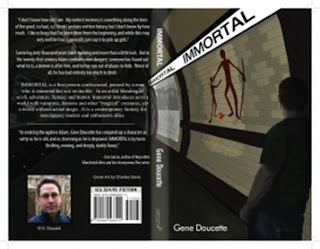 We all have our favorite tools we use when writing. But one of the advantages of the modern age is having a lot of great resources available right here on the World Wide Web. What are the tools you never write without? Here are 15 of mine:
We all have our favorite tools we use when writing. But one of the advantages of the modern age is having a lot of great resources available right here on the World Wide Web. What are the tools you never write without? Here are 15 of mine:
1) www.dictionary.com This great website is a quick and easy way to look up any word you need and quickly right on the web. Other similar sites exist, such as http://www.merriam-webster.com/, but this one has become my go-to source. In addition to the dictionary, it also has a companion http://thesaurus.com as well as a reference, translator, quote engine and more. Very useful for writers of both fiction and nonfiction.
2) http://www.behindthename.com/ A source for etymology and history of names which can be invaluable for helping pick names not just at random but for their deeper meanings. Again other similar sites exist, such as http://www.thinkbabynames.com/. Either way, they’re quite handy to have around for naming characters.
3) http://geology.about.com/ and www.geology.com. Great resources for current and past information on everything geological. Wanna build a realistic world? Don’t forget your geology. What kinds of plants and trees grow in which type of environment? What might a map of your world look like? What exotic plants exist in a climate far from your own? These sites can tell you, stimulating your creative process and helping you make a more believable world.
4) Reference.com offers hundreds of links to references of all shapes, sizes and types from almanacs to dictionaries and literature. Sister site to www.dictionary.com but worth its own separate listing because it’s such a great resource.
5) Encyclopedia.com an online encylopedia with short articles on all kinds of topics to aid your research or even story generation. Offers links to published resources like Oxford University Press and Britannica right online.
6) Internet Public Library a site offering links to full text books, articles and references for free.
7) Library of Congress access photos, manuscripts and an online library of books from the U.S. government’s key gatekeepers and copyright warehouse.
8) http://www.authorscopyright.com/ a blog offering news and other up to date information on copyright which every writer should be aware of.
9) Creative Writing Prompts offers over 300 writing prompts for writers to help stimulate you and get you started.
10) http://www.sfwa.org/for-authors/writer-beware/ a site from SFWA providing information helping weed out scams. There are lots of people preying on our dreams out there. It’s good to have a resource to help avoid them.
11) querytracker.net find agents, see sample query letters and schedule email follow ups on your queries all from this handy database.
12) writenews.com Up to the minute news for writers on the publishing business.
13) http://duotrope.com/index.aspx Looking for a home for your story? This is a go-t0 source for many writers. View listings by genre, pay rate and more. Get weekly reports sent to your inbox. Easily find new markets. All in one handy online database.
14) English Usage, Style, & Composition A collection of reference works which includes American Heritage, Strunk & White, Fowler’s King’s English, and other indispensable public-domain works.
15) http://www.copyright.com/ The copyright clearance center is a go-to resource for finding out what’s in the public domain and what isn’t. Especially invaluable for nonfiction writers.
These are just a few examples of the numerous resources out there. What are your go-to web tools for writing? Please add to the list in the comments. In the meantime, I hope this list proves helpful to you.
For what it’s worth…


